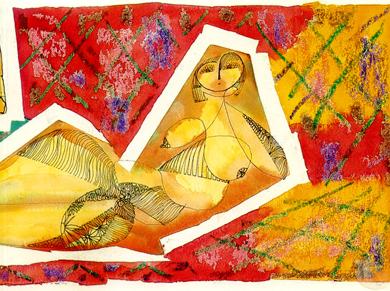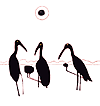





The Antigonish Review 116
"Still Buming" Brightly
Tony Tremblay
The Caged Tiger. Poems by Louis Dudek (Empyreal Press, 1997, 106 pages, $14-00). The Elsewhere Community. Essays by Hugh Kenner (House of Anansi Press, 1998, 113 pages, $14.95).
The first curiosity, no doubt, is why a reviewer would twin Louis Dudek and Hugh Kenner. To begin, both are Canadian, Dudek bom and aised in Montreal and Kenner in Peterborough. Both are among the five best literary critics this country has produced, Kenner the dean of British/American high modernism and Dudek the pioneering and most recognized practitioner of the modemist poetic form in Canada. Both are Poundians, Dudek one of the first Canadians to seek out Pound at St. Elizabeths, and Kenner the pre-eminent Pound scholar of the twentieth century. Both are distinctly "modem" in sensibility, possessing niinds of Europe and the classics, and having dedicated long careers to preserving the best of the old while making that "Attic grace" accessible to contemporary readers. And finally, like those writers who were their models (Joyce, Pound, Lewis, and Eliot), both have had as much to say about popular/mass culture as about the more rarefied expressions of civilized man. When the intellectual energies of the twentieth century are finally considered with the distance that informs clear judgement, Dudek and Kenner's contributions will distinguish Canada as a serious participant in the cultural discourse of the twentieth century. McLuhan, Innis, Grant, and Frye may have been better known, but they were no more accomplished or important than Dudek and Kenner, neither of whom, it must be said, displayed the instinct or desire for self-promotion of the thinkers above.
That Dudek and Kenner are still very much alive and intellectually vibrant is again confirmed by the two books under consideration hereDudek's The Caged Tiger (1997), a collection of poems, and Kenner's The Elsewhere Community (1998), a collection of essays written for the 1997 CBC Massey Lectures. Both collections say much about a rare kind of intellectual longevity that is generous, restless, and fiercely independent; and, indeed, both titles announce what has been the dominant motif of these two writers and more generally post-Odyssean man: journeying to elsewhere.
Kenner begins his collection with three stories of travel, the first of a young John Milton travelling to Florence to visit an aged Galileo, the second of Paddy Kavanagh walking fifty-five miles to Dublin to visit George William Russell, and the third of Kenner himself, the apprentice critic, visiting a journeyman Samuel Beckett. Rich in anecdotal detail, Kenner's three stories of travel reveal what lies at the heart of j oumeying: the desires for connection, mentorship, and, curiously, clarity, the opportunity for the journeying subject to see himself unadorned through a rear-view mirror. And so, Kenner's own tale about navigating the notorious Paris mail system to meet Beckett is reflective, finally, of a young critic travelling after what he needs to know and learn:
[Beckett] was the sweetest man I've ever known. He was also my model, whenever I was writing, for the discipline of utter economy: start with short words, progress in short, clear increments. And elegance comes less from ornament than from sparseness. (11)
Always the young moving toward the older; always the search for the answer to the most complex of all questions: who am I?
I am reminded of Pound's stay with Yeats at Stone Cottage, of Kenner and Dudek's visits with Pound at St. Elizabeths, and of one young reviewer's recent visit with Dudek. Dudek reminded me of what Pound told both him and Kenner on their visits to St. Elizabeths: "You have an obligation to visit the great men of your time." Dudek writes much the same thing in "Lessons": "I have been sent / to bring you light, / the poet says" (5). We can only conclu de that travel is a songline through history, a movement that recurs. Generative, it is the involuntary reflex of history perpetuating itself-and perpetuating itself as an affirmative gesture of inheritance.
Dudek's poetry, too, concerns itself unapologetically with this movement toward the luminous. His joumeyers in The Caged Tiger are oppressed by the minutiae of the commonplace while longing for the clarity of revelation and self knowledge. Their "grand tour," however, is through the flotsam of triviality and abstraction: "A most democratic place / with people grabbing / at all hours of day or night / like a Referendum / about the Mamas & Papas, Cat Stevens / and other stars" (23). Virgilian, the poet, as mentor, is their guide, offering comfort-"I listen to their talk, / try to make them feel good. / Ask about what they know" (23)-but also hope and direction:
Don't fool yourself
There is no such thing
as another world, all found
or another being, all perfect
in some cold heaven
from which he could reach you
But there is something realized at every moment
and vanishing in the void of time,
that has its glory (another moment)
in the music of Mozart or any kind act (27)
The literary economy that is of paramount importance to both writers grows out of urgency. As Dudek writes in "Grief..... The history of grief is long, our life is short. / We are smothered in our own suffering" (18). Only "The close relationship between poetry and common speech" (43), Kenner adds, can lead the joumeyers toward the lun-finous. It is a simplicity, Eliot reminds us, "costing not less than everything," a simplicity that for Dudek is a felt reality, "a great hunger" (73):
Yes, I have the belief, but I don't yet
have the words for it...
Yes.
Not a great emptiness
but a great fullness-
whatever the words. (99)
The generative is in the energy of movement, of wonder and curiosity, and of poetry. And so thejoumey itself is but a metaphorfor the life-affirming. "Who would want a settled truth," writes Dudek, "and not the hunt, the chase / the trials and torments / of an infinite pursuit? (104).
For both, then, poet and critic, the end of long journeys (long careers) invites a meditation on journeying, for that, essentially, is what both books before me are about. Considered in this light, Kenner's encyclopedic record of his trek through the modems and Dudek's parallel voyage from the pre-Socratics through Aquinas to "Atlantis" is, in the end, the exercise of a similar impulse. To use Dudek's term, both have sought "Atlantis," that paradise which Pound, too, buoyed and blinded by youthful exuberance, tried to write. The hubris that Pound apologizes for at the end of his cantos, however, is nowhere evident in Dudek and Kenner. Instead, their books are navigational fieldnotes, not ABCs to paradise.
***
A short time ago I saw Russian poet Yevgeni Yevtushenko interviewed on television. He came on after a long line of Russian intellectuals who were analyzing Russia's financial crisis under Boris Yeltsin. The manner of these intellectuals and bureaucrats who preceded Yevtushenko was similar: in a word, sterile. All were cool, witty, and emotionally detached from that which they were passively theorizing. All spoke as if what they said made very little difference to them as individuals, almost as if they were immune fromthe socio-economic aftershocks of political collapse. When Yevtushenko was interviewed, he seemed maniacal by contrast. His observations were keenly felt, his tone inflated, and his annoyance palpable. At moments he became furious, an enragement that clearly opened his mind to the hearts of those countrymen with whom he was commiserating. Yevtushenko was speaking as a poet. What he said mattered to him beyond the fashionable or abstract, and his intellectual honesty in this regard reminded me of something I read earlier by another poet, New Brunswicker Fred Cogswell. Contrasting "academic" with "maverick" writers, Cogswell noted:
Both groups take writing seriously; both have written well technically, but the gulf between them, it seems to me, is not well enough understood. . . . [For academic writers] the foremost thought process is analysis. The goal of analysis is understanding, and action is relegated to a secondary function. 'To understand all is to forgive all' becomes a comforting doctrine since it requires no action other than an ongoing process that feeds on itself and no doubt can be led to justify anything. Hence, the rift between the 'civilized' thought of the modern world and the unspeakable barbarity of its conduct. (36)
Perhaps all poets think alike. Yevtushenko's passion and Cogswell's integrity remind me of a similar intellectual honesty in Dudek and Kenner, an honesty that finds expression in Dudek's poem "In Old Age." I quote the poem in its entirety, for in addition to being a signature piece of Dudek's, it doubles as an illustration of a rare kind of poetic temperament that only serious artists and rare critics have. Consider that the following poem was written by a man of 80:
In Old Age
Writing poetry for an unlettered people,
I have suffered
scorn and neglect, the usual insult,
without comment or complaint
for many years-
but now
in my old age
when I see the young,
in thin puffy feathers, mouths open,
and suffering the same
death and starvation, dying
for mere lack of nurture,
for common comfort,
I rage
I rage
I open my terrible wings, among these black branches
and I rage.
(The Caged Tiger 13)
The only intellectuals worth anything are Virgilian-generous with guidance,
intolerant of folly, and brought to sickness by the tragic. "It's a consciousness
governed by passion," writes Kenner. "And passion is the note to end on.
It's our passions we are remembered by" (I 06-07). And so we will always
possess Louis Dudek and Hugh Kenner, whose works reveal the lambent beating
of the joumeyer's heart.
____________
Works Cited
Cogswell, Fred. "Academics and Mavericks." Pottersfield Portfolio. 1,9.1 (Fall 1998): 36-37.
Editorial Office:
The Antigonish Review
P.O. Box 5000
Antigonish
Nova Scotia B2G 2W5
Canada
Telephone: (902) 867-3962
Fax: (902) 867-5563
E-mail: tar@stfx.ca

